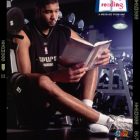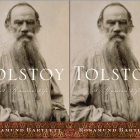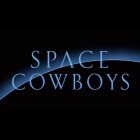Patriotism Swells in the Heart of the American Bear: Some Books for the 4th
Before we move on to things literary, I think we should begin this Independence Day week with Fozzie Bear singing “America the Beautiful,” which my mother incorrectly identified as our national anthem during her citizenship exam (she still passed). Actually, I kind of wish it was our national anthem—I prefer its focus on the extraordinary natural beauty of this country rather than our military might. I also wish that it could be sung, whenever possible, by a giant stuffed bear.
Now, on to some of our favorite books about American history!
“Although I’m not usually a nonfiction lover, I make an exception for Paul Johnson’s remarkable A History of the American People. Be forewarned: at 1,104 pages, this books clocks in right between enormous and epic. Though this tome looks unapproachable, Johnson’s tone throughout is readable and friendly—and his storytelling is truly remarkable. We all know that the Declaration of Independence was eventually signed, but Johnson brings the reader into the past so effectively—shows the insurmountable problems that stood in the way of what now seems like cut and dry history—that at certain points I found myself wondering if this start-up nation was going to make it. Although Johnson himself is British, his deep love for American history comes through in this book. He is uniquely positive, seeing America’s mistakes not simply as tragedies, but also as lessons for the future. It is hard to come away from this classic pessimistic about the future.” —Jessica Arnold, Digital Production Assistant
“As a break from acerbic commentary, I recently picked up a book that has been raising my spirits about both America and humanity: Rebecca Solnit’s thought-provoking A Paradise Built in Hell: The Extraordinary Communities That Arise in Disaster. I think we’ve all heard enough about people taking advantage of each other when things get difficult. Solnit’s book discusses the extraordinary generosity and community spirit that are perhaps even more common in the aftermath of catastrophes. She discusses three American tragedies: the 1906 San Francisco earthquake, Katrina, and September 11th, and finds many more examples of spontaneously noble conduct than the opposite.” —Akshay Ahuja, Production Manager
“Time Enough for Drums, by Ann Rinaldi: This book harkens back to English class days of old. Although it’s a YA book with a side of romance, it’s a completely historically accurate take on a sixteen-year-old girl’s life during the Revolutionary war. Aunt Jemima Emerson is a feisty liberal-leaning teenager whose tutor John Reid is a boring old Tory. Of course John is actually a double-agent, working as a spy for the rebels (because no romantic figure can be on the losing side of a historical conflict). I wish this book had been assigned instead of those silly old textbooks they had us read in American History class.” —Andrea Martucci, Managing Editor
“I read Kathryn Stockett’s The Help, a novel about race during 1962 Jackson, Mississippi, immediately after seeing the movie. The novel reveals the struggles of black maids who cook, clean, and raise the children of white families, children who love them as colorblind toddlers and who grow to mimic their racist mothers. One of three narrators in The Help, Aibileen, tells ‘secret stories’ to the white child she raises in order to instill life lessons on racial equality and civil rights, stories about a ‘real nice [and wise] Martian’ named Martin Luther King Jr. who no one liked because he was green; Aibileen strives to ‘stop that moment from coming—and it come in every child’s life—when they start to think that colored folks ain’t as good as whites.'” —Jennifer Feinberg, Editorial Intern
“Growing up, nothing about the historical facts I copied down from overhead projections resonated, so I was always hesitant to dive into history, unless there were strong elements of narrative and motivation and imperfection that I could latch onto. A People’s History of Baseball, by Mitchell Nathanson, while maybe not the usual sort of book I would pick up, engages me because of the way Nathanson immediately connects baseball, our national pastime, to our messy history: ‘Rather than see baseball through a patriotic, sepia haze, we can choose to see it through a more critical eye, one that permits us to see our collective selves as something less than our best.’
“But, as Fozzie’s voice reminds us, we can’t internalize what America has been, is, and will be without the help of a little humor. Sometimes it’s Muppet-style humor that we need, and sometimes it’s in a voice that is simultaneously deadly serious. Take the poetry of Tony Hoagland, for example, who often mourns over the cataclysm of American complacency, but is also known for his humor. ‘So we were turned into Americans / to learn something about loneliness,’ he writes. What I envision is a few days into the future: me crammed in with thousands and thousands of people along Boston’s Esplanade while fireworks crash and boom above our heads for hours. So yes, Mr. Hoagland, it is our ‘own hand which turns the volume higher,’ but what else are we to do? We can’t simply deny the pleasure of it all, nor the off-key belting out of America the Beautiful.'” —Abby Travis, Editorial Assistant



